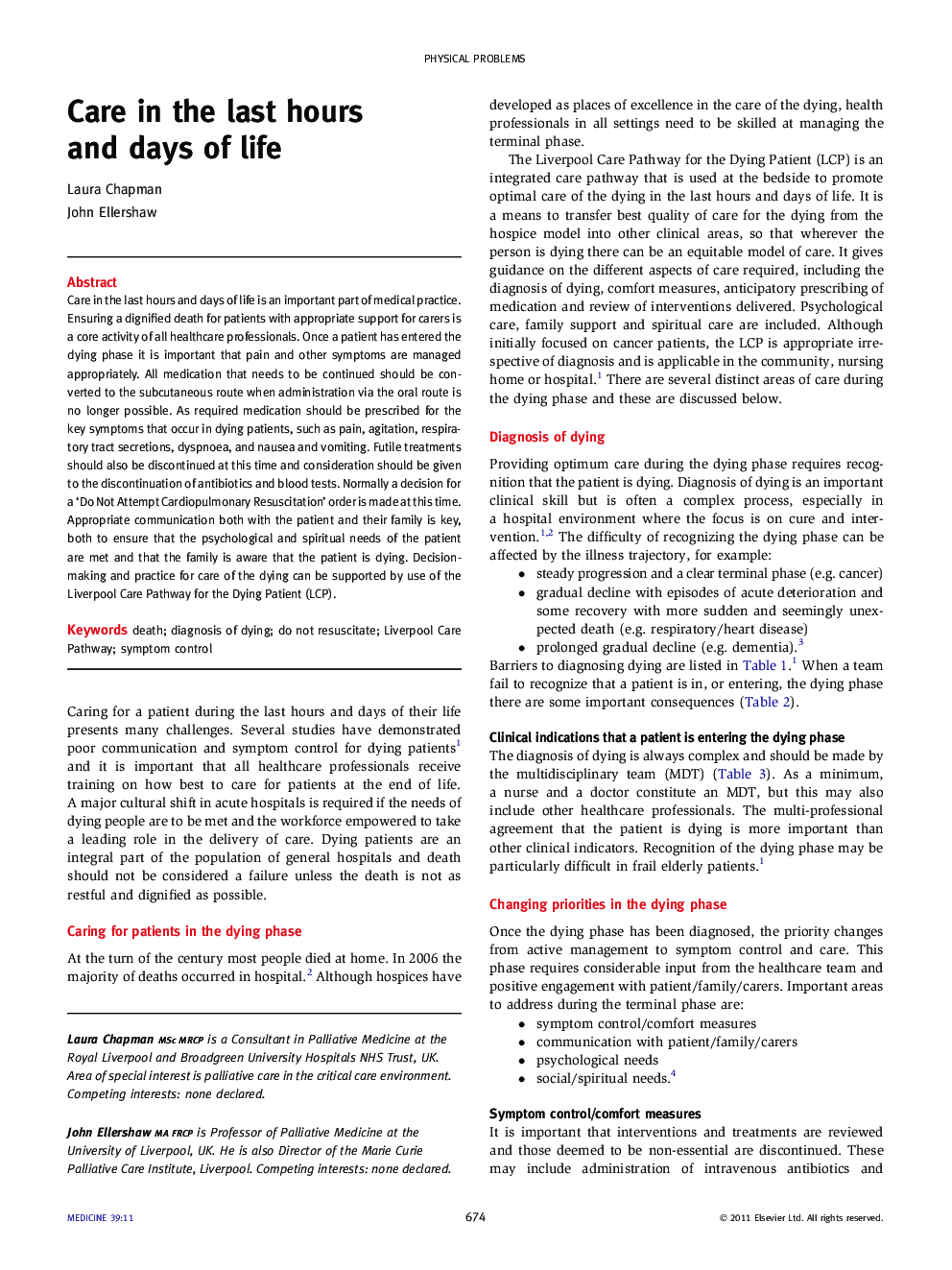| Article ID | Journal | Published Year | Pages | File Type |
|---|---|---|---|---|
| 3806957 | Medicine | 2011 | 4 Pages |
Care in the last hours and days of life is an important part of medical practice. Ensuring a dignified death for patients with appropriate support for carers is a core activity of all healthcare professionals. Once a patient has entered the dying phase it is important that pain and other symptoms are managed appropriately. All medication that needs to be continued should be converted to the subcutaneous route when administration via the oral route is no longer possible. As required medication should be prescribed for the key symptoms that occur in dying patients, such as pain, agitation, respiratory tract secretions, dyspnoea, and nausea and vomiting. Futile treatments should also be discontinued at this time and consideration should be given to the discontinuation of antibiotics and blood tests. Normally a decision for a ‘Do Not Attempt Cardiopulmonary Resuscitation’ order is made at this time. Appropriate communication both with the patient and their family is key, both to ensure that the psychological and spiritual needs of the patient are met and that the family is aware that the patient is dying. Decision-making and practice for care of the dying can be supported by use of the Liverpool Care Pathway for the Dying Patient (LCP).
